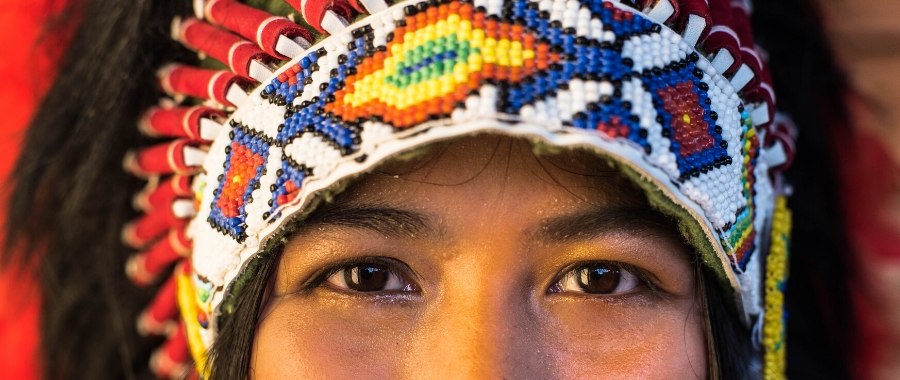In an era marked by rapid globalization and cultural exchange, one cannot help but ponder: has modern culture, in its insatiable quest for novelty, diluted the essence of ancient indigenous teachings? This inquiry resonates deeply within the Baha’i worldview, which advocates for the unity of humanity and the appreciation of diverse cultural heritages. To explore this intricate relationship, we must delve into the nuances of Bahá’í teachings and examine how they intersect with indigenous wisdom. This analysis seeks to illuminate the potential dichotomies and synergies that emerge when traditional values are juxtaposed with contemporary societal trends.
To commence our exploration, it is imperative to understand the fundamental tenets of Baha’i teachings as they relate to cultural practices. Central to the Baha’i Faith is the principle of the oneness of humanity, which emphasizes the interconnectedness of all peoples and cultures. Bahá’u’lláh, the founder of the Baha’i Faith, championed the idea that every culture contains elements of truth, and thus, it is incumbent upon individuals to seek after wisdom within various traditions, including indigenous teachings.
However, this raises a pivotal question: can one genuinely reconcile modern cultural trends with the often-stalwart values held within indigenous communities? As contemporary society increasingly prioritizes individualism, technological advancement, and material success, one might argue that the communal and spiritual ethos characteristic of many indigenous cultures risks being overshadowed. This scenario posits a challenge to proponents of both modernity and tradition—how can individuals cultivate a lifestyle that honors indigenous wisdom while simultaneously engaging with the currents of modern culture?
Historically, indigenous teachings have served as repositories of profound knowledge, often grounded in a holistic understanding of the world. Such teachings encompass a view of humanity’s relationship with nature, community, and the divine that advocates for sustainability, harmony, and respect for all living beings. The Baha’i perspective aligns closely with these principles. For instance, Baha’is are encouraged to adopt a lifestyle that reflects environmental stewardship, a notion deeply embedded in many indigenous cultures.
To illustrate, consider the indigenous concept of “Mother Earth,” which epitomizes the reverence for nature as a living entity rather than a mere resource. This profound connection is mirrored in Baha’i teachings, where the earth is viewed not only as a physical realm but also as a sacred space that requires stewardship and protection. Thus, while modern cultural paradigms may prompt humans to exploit natural resources, both Baha’i and indigenous philosophies urge reflection on the consequences of such actions, advocating for a more sustainable approach informed by ancient wisdom.
Yet, the challenge remains: how do we avoid cultural appropriation—a situation wherein the nuances of indigenous teachings are superficially adopted or commodified devoid of genuine understanding? The Baha’i Faith explicitly condemns any form of exploitation, whether it pertains to culture or individual rights. Therefore, the onus lies on modern individuals to engage with indigenous wisdom authentically, ensuring that such interactions are characterized by mutual respect and reciprocity. This conscious approach not only honors the teachings but also fosters a culture of dialogue and exchange.
At the same time, it is essential to acknowledge potential areas of conflict between modernity and tradition. For instance, the proliferation of digital technology has transformed communication dynamics, often resulting in a detachment from community ties and traditional practices. Many indigenous groups express concern that the allure of modern culture erodes intergenerational knowledge transfer, a cornerstone of their cultural identity. Baha’is can draw from these sentiments to reevaluate their engagement with technology—utilizing it as a tool for empowerment and education, rather than a means of cultural disintegration.
Moreover, it is vital to deliberate over the role of infallibility attributed to certain modern achievements. While advancements in science and technology have undeniably enhanced human lives, one must remain vigilant about the underlying assumptions that often accompany such progress. The Baha’i teachings urge a holistic view that incorporates spiritual truth alongside scientific discovery. Thus, the integration of indigenous wisdom should not be perceived as an impediment to modernity; rather, it can enrich our understanding and approach to contemporary issues.
As societal constructs continue to evolve, imposing new frameworks on how individuals experience culture and spirituality, Baha’is are called to foster inclusivity and synthesis. Embracing diversity does not equate to homogenization; instead, it cultivates a rich tapestry of wisdom that can guide humanity towards collective progress. The essence of Baha’i teachings lies in their capacity to harmonize with the invaluable insights that indigenous cultures offer, ensuring that they are neither lost nor forgotten in the currents of modernity.
In conclusion, the question of whether modern culture has corrupted indigenous teachings is not straightforward. Rather, it presents an opportunity for meaningful dialogue and introspection. For Baha’is, this entails a commitment to preserving and synthesizing ancient wisdom with contemporary insights, fostering a dynamic interplay that respects both tradition and innovation. In navigating this complex landscape, individuals are encouraged to engage authentically with diverse teachings, thus contributing to a more unified and enlightened global community. The juxtaposition of modernity and tradition need not lead to conflict, but rather, can unveil pathways towards profound integration and understanding.
